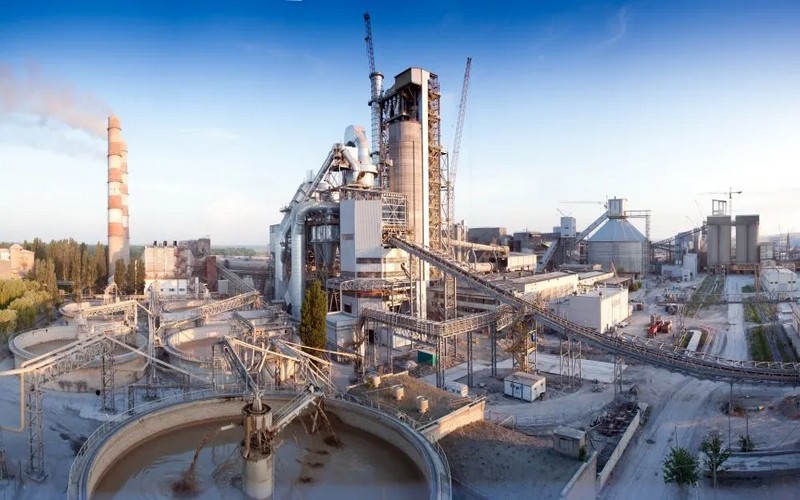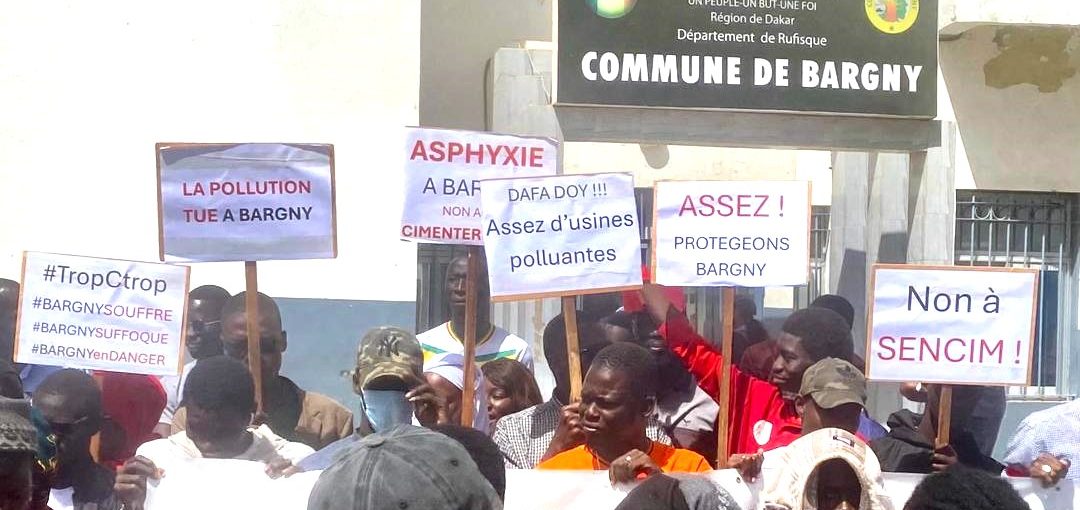Senegal: Bargny Community Mobilizes to Protest Against the Installation of a New Cement Plant.
Bargny is a coastal town located in the Rufisque department in Senegal. Historically, the community relied on fishing, agriculture, and processing of fishery products for their livelihood. Today, the population faces challenges posed by climate change, particularly the encroachment of the sea leading to the loss of homes along the coastline. Additionally, there are environmental and social impacts resulting from the activities of multiple industrial units established around the municipality.
On Monday, April 8, 2024, Bargny experienced a significant mobilization of young people, women, and men who gathered in large numbers at the Ndiouga DIENG socio-cultural center in Bargny and in front of the town hall to protest against the approval of the environmental and social impact study related to the establishment of a new cement plant within the vicinity of the Bargny-Sendou bulk and mineral port. Once a community known for fishing, Bargny is now on the verge of transforming into an industrial zone, surrounded by various industrial infrastructures such as the coal-fired power plant, the mineral and bulk port, the Sococim cement plant, and the proposed construction of a steel plant known as “tosyali.”
Unfortunately, the cumulative impacts of all these infrastructures coexisting closely are gradually deteriorating the living conditions of the population, compromising the sustainability of their livelihoods, and severely affecting their right to a healthy environment.
The announcement of a public hearing scheduled for Monday, April 8, 2024, at the Ndiouga DIENG socio-cultural center in Bargny regarding the validation process of the environmental and social impact assessment report for the cement manufacturing plant project by SENCIM COMPANY SA sparked disagreement within the community. The community expressed their discontent through various messages, indicating their frustration and opposition to the project.
The date of April 8 was marked by protests. The public hearing at the Bargny Socio-Cultural Center was disrupted by the community, who besieged the platform holding signs with messages such as “Enough! Protect Bargny,” “Another cement plant? No thanks, Bargny is suffocating,” “No to SENCIM,” “Bargny is not an industrial zone.” This protest also served as an opportunity to convey messages to the authorities. Following the event, the community held a press conference in front of the Bargny town hall to voice their dissatisfaction.
“This project infringes on our rights, on our environment. We no longer live in Bargny, Bargny is suffering, Bargny is suffocating, we do not want to be the target of these polluting factories anymore,” exclaimed Ousmane Diop, a young resident of the town.
Natural Justice, an AACJ partner organization present at the event, expressed their views: “Citizen mobilization is part of a continuum of environmental struggles.” Thaddée Adiouma Seck, a Senior Programs Officer within the organization present in Bargny since 2018, attested to their commitment to supporting communities. “We assist communities by enhancing their legal understanding related to environmental issues,” he affirmed. From the fight against the coal-fired power plant to the resistance against the SENCIM cement plant, the organization continues to provide invaluable support to environmentally conscious citizens.
If the cement plants are implemented in Bargny, the consequences could be severe for the local population. The industrial activities could further degrade the already fragile environment, leading to pollution of air, water, and soil. This pollution can have detrimental effects on the health of residents, causing respiratory problems, water contamination, and loss of agricultural productivity. Additionally, the construction and operation of cement plants may exacerbate the existing social tensions and negatively impact the traditional way of life of the community, which has long relied on fishing and agriculture for sustenance.
As African activists for climate justice, witnessing the plight of Bargny resonates deeply within our hearts and stirs a sense of urgency in our souls. The struggles faced by the community mirror the broader challenges faced by countless vulnerable populations across the continent, grappling with the harsh realities of environmental degradation and industrial encroachment. Bargny’s fight is our fight, a poignant reminder of the interconnectedness of our struggles and the need for collective action to safeguard our shared planet. The resilience and determination shown by the people of Bargny inspire us to redouble our efforts in advocating for environmental justice, amplifying the voices of the marginalized, and holding accountable those responsible for the degradation of our natural world. The battle for Bargny is a microcosm of the larger battle for climate justice in Africa and beyond, a call to action for solidarity, empowerment, and sustainable change.



